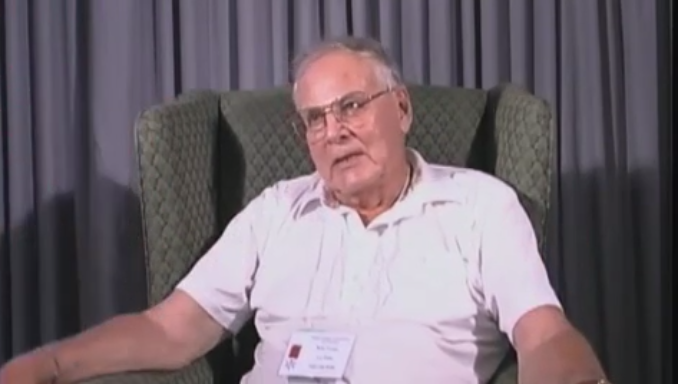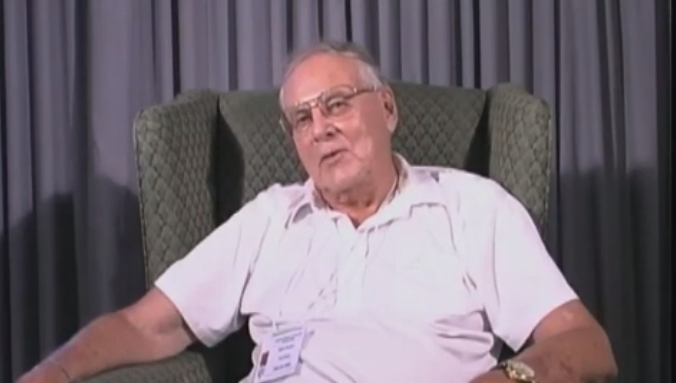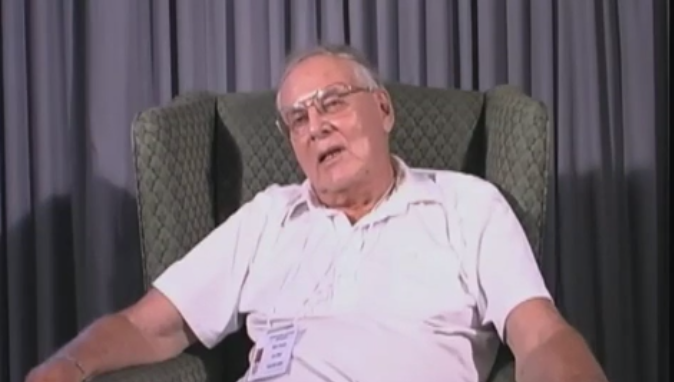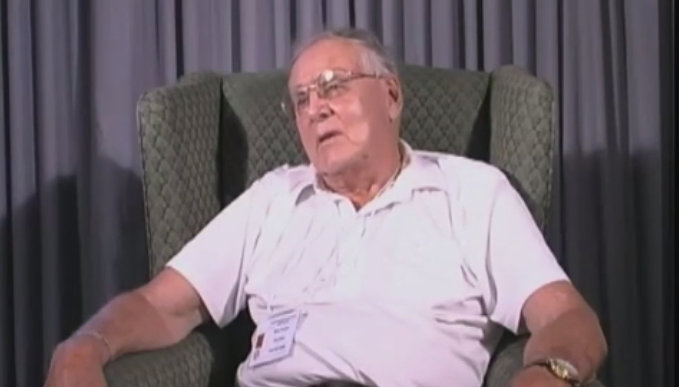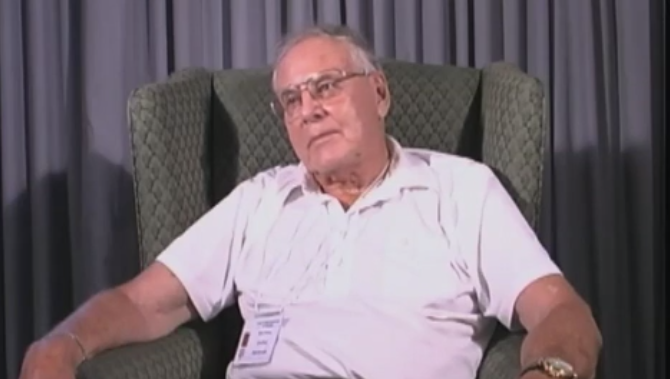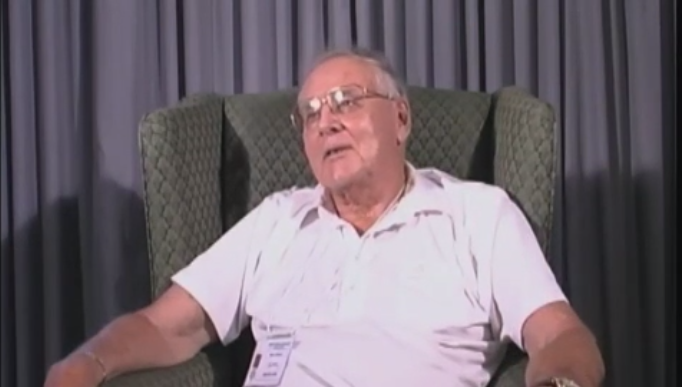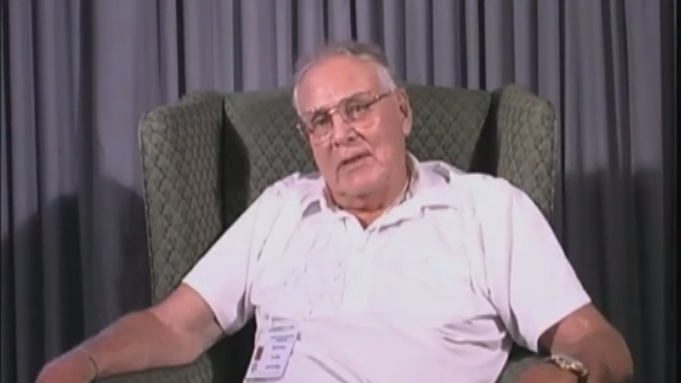Saved By a Chemical Toilet
Heroes Remember
Saved By a Chemical Toilet
Transcript
You’re only supposed to fly the engines, run the engines through
the gate as they call it, for five minutes. But we ran these
engines through the gate for almost ten hours, and they never
even warmed up. They were great. But this aircraft had one
particular thing that other aircraft didn’t have, and that was a
chemical toilet had been added in the rear of the aircraft.
And so this was a very popular thing. It had been well used.
Well, when we came in for a landing, we had great difficulty,
because every time we throttled back, this great big hole in the
wing, the aircraft wanted to swing. And we lowered our
undercarriage and one wheel fell off completely. The other wheel
was swinging, but we went around again. And, very lucky,
we hit a fence and took the other wheel off, which was a good
thing, and we missed a big storage tank. We came around again,
and we had to fly the aircraft, actually fly it almost at the
maximum speed, into the ground, into the runway, which we did.
Everybody got out of it fine. It caught on fire. We had to kick
out a window, because the upper turrets came down, blocked our
escape route. The aircraft had been damaged enough that the side
windows could be kicked out, which we did.
And then, on the way to the briefing, we noticed that there
was a very bad odor. And it was, by this time it was dark,
and when we got in the briefing room we saw some of those
fellows that had been in the back of the aircraft, their uniforms
now were not blue, they were brown. But, the funny part of the
thing was, if they had’ve stayed in their crash positions that
they were in, they would have probably been killed. But because
they were all dodging flying ‘you know what’, they didn’t get
hurt at all. So we all got out of there without getting hurt.
It was the next day that we ended up going back to see what
the aircraft looked like, in the back of a truck. And there was a
heavy, heavy armored truck coming down, it was noon hour, hot.
And the driver, I guess, was just nodding by and he ran into the
back of us. Well, I ended up with a bit of a fractured skull,
because I landed on the tarmac. Others got hurt, leg,
back and so forth. But that turned out very good, too,
because it gave us leave up in Darjeeling. And as you probably
know, or I probably told you, we were paid by the Canadian
government as Canadians although we were seconded to the
RAF and we were paid also by the Indian government. But the
Indian government paid in rupees and it had to be spent.
You couldn’t take it out of India, it had to be spent.
Well, we had no place to spend it, so we had lots of it, much to
the distress of the British Administration. They had to fly an
aircraft to Calcutta to get enough money so we could go.
So, everything did… sometimes disasters turn out great.
Description
Mr. Power talks about the difficulties with landing the aircrafts.
Robert Power
Robert Power was born in 1920, in Yarmouth, Nova Scotia. He grew up in a small fishing village with a one-room schoolhouse. Before enlisting in 1942, Mr. Power studied biochemistry. He served as a pilot in the RAF and spent 26 years in the military. After the war, Mr. Power returned to medicine and became a doctor.
Meta Data
- Medium:
- Video
- Owner:
- Veterans Affairs Canada
- Duration:
- 3:52
- Person Interviewed:
- Robert Power
- War, Conflict or Mission:
- Second World War
- Location/Theatre:
- Burma
- Battle/Campaign:
- Burma
- Branch:
- Air Force
- Units/Ship:
- 159 Squadron
- Rank:
- Lieutenant-Colonel
- Occupation:
- Pilot
Related Videos
- Date modified:




